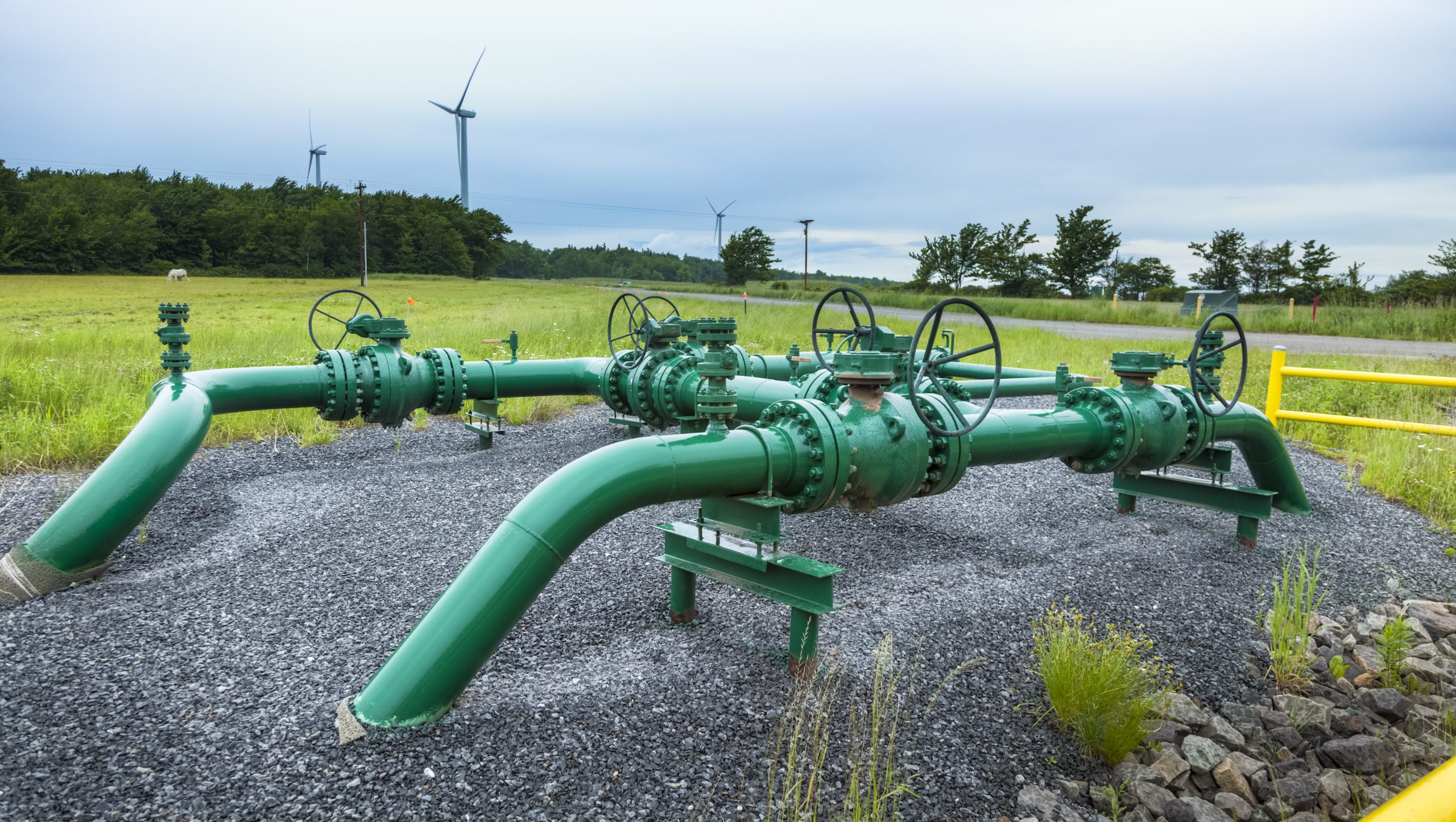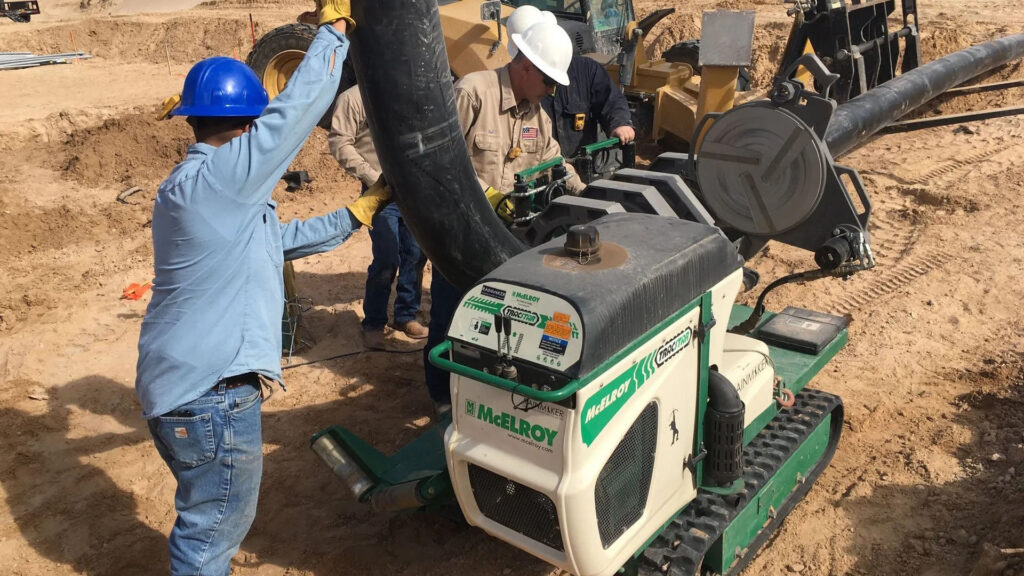How Customer Feedback Can Help You Choose Pipeline Construction Services
The Essential Overview to Recognizing Pipeline Construction Services and Their Significance
Pipeline Construction solutions are fundamental to the transport of important resources such as gas, oil, and water. These services involve careful planning and execution, adhering to stringent security and ecological requirements. As the sector adapts to modern-day challenges, understanding its implications and components comes to be progressively vital. What variables add to the expanding importance of these services in today's economy? The adhering to areas will explore these crucial aspects.
Summary of Pipeline Construction Solutions
Pipeline Construction solutions include a series of activities crucial for the installation and upkeep of pipes utilized to transfer various materials, consisting of gas, oil, and water. These solutions are important for assuring the efficient and secure motion of resources from one place to an additional. The procedure usually begins with extensive planning and layout, which thinks about regulative demands, ecological factors to consider, and logistical challenges.
Excavation and grading of the land are conducted to prepare the website for Pipeline installation once planning is complete. This is adhered to by the actual laying of the pipes, which includes welding or signing up with sections with each other to develop a continuous circulation course. After setup, strenuous screening is performed to assure honesty and safety and security. Upkeep solutions are additionally given to resolve any type of problems that may emerge over time. Overall, Pipeline Construction services play a pivotal role in supporting framework for power and water circulation.
Trick Parts of Pipeline Construction
An effective Pipeline Construction project depends on numerous vital elements that ensure the effective and risk-free installment of the Pipeline system. Thorough website evaluations are essential, as they identify the environmental and geographical aspects that might impact Construction. Next off, the selection of ideal materials, such as pipes and fittings, is necessary for protecting toughness and compatibility with the transported compounds.
In addition, advanced Construction techniques, consisting of trenchless innovation and directional boring, enhance effectiveness and reduce environmental influence. Effective job monitoring is an additional crucial part, coordinating labor, equipment, and timelines to satisfy project goals.
In addition, communication amongst stakeholders, including designers, specialists, and neighborhood authorities, assurances placement on job specs and requirements. Finally, extensive high quality control measures throughout the Construction process make sure conformity with industry requirements and optimize the Pipeline's operational life-span. Collectively, these elements develop the foundation of an effective Pipeline Construction job.
Safety Criteria and Laws in Pipeline Construction

Regulative bodies, such as the Occupational Safety And Security and Wellness Management (OSHA) and the Pipeline and Hazardous Products Safety And Security Administration (PHMSA), stated details needs that control Construction techniques. These consist of methods for equipment use, worker training, and emergency reaction treatments. By carrying out these requirements, Construction business not only secure their workers yet also secure public trust. Ultimately, strenuous precaution add to the long-term success of Pipeline tasks, guaranteeing they satisfy both operational and environmental assumptions.
Ecological Considerations in Pipeline Projects

Ecological factors to consider are essential to the preparation and execution of Pipeline tasks. These tasks should evaluate prospective influence on ecosystems, water resources, and regional wildlife. Carrying out complete environmental effect assessments (EIAs) is crucial, enabling stakeholders to identify and alleviate risks before Construction starts.
Safeguarding delicate areas, such as marshes and habitats, typically requires carrying out specific style attributes or alternative transmitting to minimize disruption. In addition, Pipeline drivers are tasked with creating strategies for stopping leakages and spills, which can have terrible results on the environment.
Engagement with neighborhood areas is vital, as public problems can lead to job alterations that enhance environmental management. Conformity with regulations set by environmental agencies guarantees that jobs fulfill sustainability standards, fostering an equilibrium in between framework demands and ecological preservation. Ultimately, dealing with ecological factors to consider not just safeguards nature but also promotes community count on and job feasibility.
The Function of Modern Technology in Pipeline Construction
Modern technology plays a crucial role in modern Pipeline Construction, enhancing efficiency and precision. Advanced evaluating strategies enable for exact preparation and execution, decreasing environmental impact and task hold-ups. Furthermore, the assimilation of automation and robotics improves procedures, lowering labor prices and improving safety and security on Construction websites.
Advanced Surveying Strategies
Advanced checking methods play a vital function in the successful implementation of Pipeline Construction projects. These methods take advantage of sophisticated innovation to assure accurate mapping and evaluation of the surface where pipes will be installed. Methods such as Geographic Info Equipment (GIS), LiDAR (Light Discovery and Ranging), and 3D modeling make it possible for designers to evaluate the landscape and imagine, identifying potential obstacles and environmental concerns. By making use of these sophisticated tools, groups can boost accuracy in positioning and positioning, substantially minimizing the risk of errors during Construction. In addition, real-time data collection permits immediate changes and informed decision-making throughout the job lifecycle. Ultimately, these evaluating developments add to enhanced effectiveness, safety, and sustainability in Pipeline Construction efforts.
Automation and Robotics

Economic Influence of Pipeline Infrastructure
Pipeline infrastructure plays an important duty in facilitating and shaping local economies profession. By giving a trustworthy means of delivering oil, gas, and other assets, pipes decrease transport prices and boost supply chain efficiency. This facilities attracts investment, promotes task development, and fosters financial growth in bordering areas.
The Construction and maintenance of pipelines add considerably to regional economic climates, producing many work possibilities in different fields, from design to labor. The increase of work frequently results in enhanced costs in neighborhood organizations, better bolstering financial task.
In addition, pipelines enhance energy security by ensuring a stable supply of sources, which is critical for household needs and industrial procedures. As areas end up being interconnected through Pipeline networks, they access to broader markets, raising competition and economic resilience. The financial influence of Pipeline infrastructure is multifaceted, influencing both instant regional economic climates and more comprehensive local advancement.
Future Trends in Pipeline Construction Providers
The future of Pipeline Construction solutions is advancing in feedback to technological innovations, regulative modifications, and growing This Site ecological factors to consider. Innovations such as drones and robotics are enhancing inspection and maintenance processes, boosting safety and performance. Automation is positioned to minimize labor costs and raise accuracy in Construction operations. In addition, the boosting emphasis on sustainability is motivating companies to take on environmentally friendly products and techniques, aligning with global efforts to lower carbon impacts.
Regulative structures are also adjusting to deal with ecological influences, pushing for better transparency and liability in Pipeline tasks. In addition, the combination of clever technologies, consisting of real-time monitoring systems, is anticipated to boost the integrity and performance of Pipeline networks. As energy needs shift towards sustainable sources, Pipeline Construction solutions will likely see a rise in tasks associated to biofuels and hydrogen transportation. Overall, these fads indicate a transformative duration for the Pipeline Construction industry, concentrated on technology and sustainability.
Regularly Asked Questions
What Kinds of Pipelines Are Generally Built?
Different sorts of pipelines are frequently created, consisting of oil, water, gas, and sewer pipes - Pipeline Construction Services. Each offers unique functions, helping with the transport of crucial sources throughout regions while adhering to security and environmental guidelines
How Long Does a Regular Pipeline Project Take?
The duration of a normal Pipeline job differs greatly, commonly ranging from a number of Bonuses months to a couple of years. Elements influencing this timeline consist of job intricacy, regulative approvals, and environmental considerations that need to be dealt with.
That Regulates Pipeline Construction Firms?
Pipeline Construction business are regulated by numerous government, state, and local firms, consisting of the Pipeline and Hazardous Materials Safety And Security Management (PHMSA) and state utility commissions, ensuring conformity with safety and ecological criteria throughout the Construction procedure.
What Are Common Products Utilized in Pipeline Construction?
Usual materials made use of in Pipeline Construction consist of pvc, polyethylene, and steel. Each material supplies unique benefits such as toughness, flexibility, and resistance to rust, making them suitable for different applications in moving gases and liquids.

How Are Pipeline Construction Costs Estimated?
Pipeline Construction prices are approximated by evaluating variables such as product costs, labor rates, project intricacy, environmental More Help considerations, and governing needs (Pipeline Construction Services). Exact expense estimation warranties reliable budgeting and job preparation throughout the Construction procedure
Pipeline Construction solutions encompass an array of tasks crucial for the installment and upkeep of pipes utilized to transfer numerous materials, consisting of oil, gas, and water. A successful Pipeline Construction project counts on a number of key parts that ensure the risk-free and reliable setup of the Pipeline system. Advanced checking strategies play a necessary role in the successful execution of Pipeline Construction tasks. Different types of pipelines are commonly created, including oil, gas, sewage, and water pipelines. Pipeline Construction expenses are approximated by examining factors such as material expenditures, labor rates, job intricacy, environmental factors to consider, and regulatory needs.